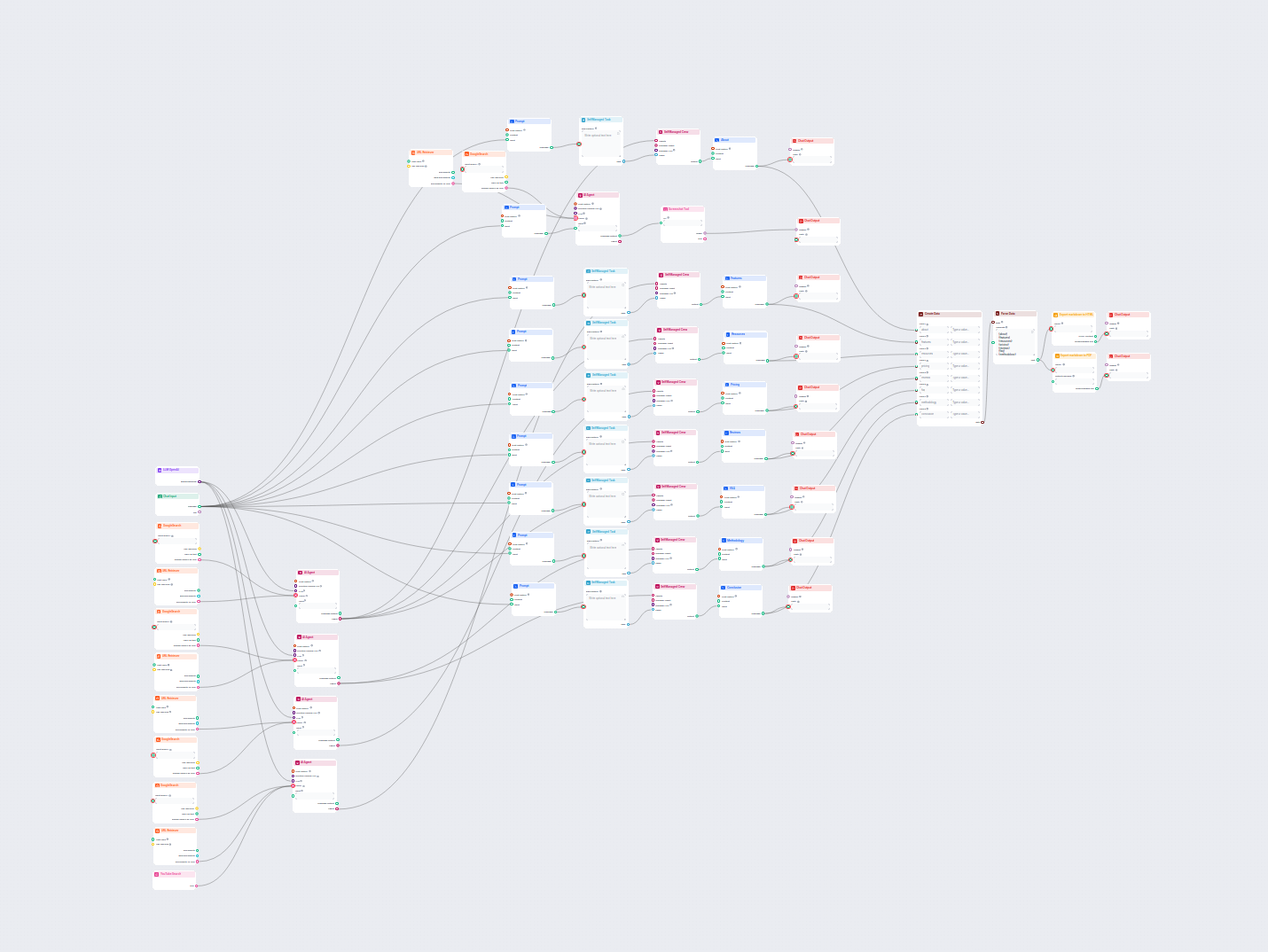
AI Software Review Article Generator
Generate comprehensive, SEO-optimized product review articles for software tools, including detailed features, pricing, user reviews, resources, and more, with ...

The Screenshot Tool component captures images of web pages by URL, enabling automated visual data collection in your workflow.
Component description
The Screenshot Tool is a component designed to capture screenshots of web pages given a URL. This tool can be integrated into AI-powered workflows to automate the process of visually documenting websites, archiving web content, or providing image-based evidence of a web resource at a specific point in time.
The component accepts the following inputs:
| Input Name | Type | Required | Default | Description |
|---|---|---|---|---|
Url (input_url) | String | No | The full URL (including protocol, e.g., https://) of the web page to capture. | |
Screenshot Width (screenshot_width) | Integer | No | 1366 | Width of the screenshot in pixels (1 to 1366). |
Screenshot Height (screenshot_height) | Integer | No | 768 | Height of the screenshot in pixels (1 to 768). |
Tool Name (tool_name) | String | No | Optional name for referencing the tool in an agent. | |
Tool Description (tool_description) | String (multiline) | No | Optional detailed description to help agents understand how to use the tool. | |
Verbose (verbose) | Boolean | No | False | Enables verbose output for debugging or logging purposes. |
The component produces the following outputs:
| Output Name | Type | Description |
|---|---|---|
| Image | FlowSessionAttachmentResponse | The captured screenshot image as an attachment. |
| Tool | Tool | The configured tool object for integration/usage. |
This component is straightforward to use and highly valuable for workflows that require visual documentation or processing of web resources.
To help you get started quickly, we have prepared several example flow templates that demonstrate how to use the Screenshot Tool component effectively. These templates showcase different use cases and best practices, making it easier for you to understand and implement the component in your own projects.
Generate comprehensive, SEO-optimized product review articles for software tools, including detailed features, pricing, user reviews, resources, and more, with ...
The Screenshot Tool captures a snapshot of a specified web page by URL, returning an image you can use or process further in your workflow.
Yes, you can set custom width and height for your screenshot to fit your specific needs.
It’s ideal for monitoring website changes, documenting web content, or integrating visual data into automated reports or AI workflows.
You can provide a description and name for the tool, and enable verbose output for detailed process information if needed.
Automate website screenshots and streamline your workflows with the Screenshot Tool component—no manual steps required.
Generate stunning images from text prompts with the Flux Image Generator component in FlowHunt. Customize output with model selection, image ratio, and guidance...
Unlock web content in your workflows with the URL Retriever component. Effortlessly extract and process the text and metadata from any list of URLs—including we...
The Chat Input component in FlowHunt initiates user interactions by capturing messages from the Playground. It serves as the starting point for flows, enabling ...
Cookie Consent
We use cookies to enhance your browsing experience and analyze our traffic. See our privacy policy.


